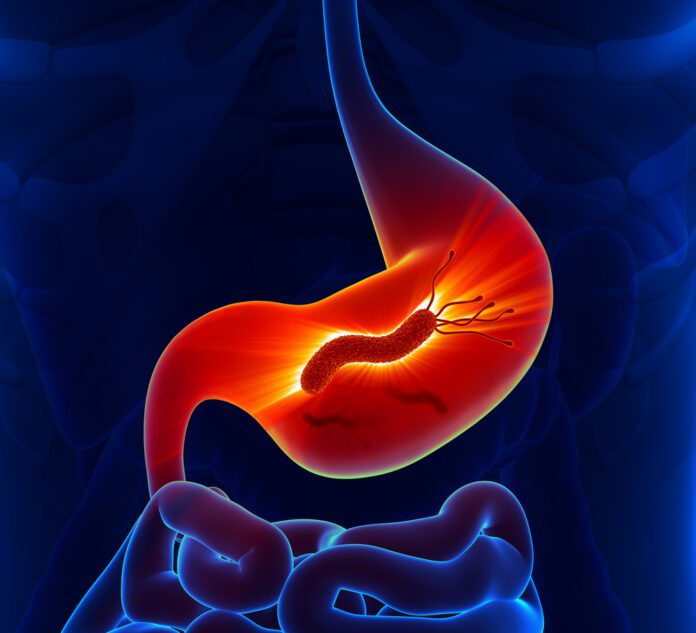Overview Of H Pylori Infection
Helicobacter pylori (H pylori) is a type of bacteria that infects the stomach. It is very common, affecting about two-thirds of the world’s population. H pylori infection is the most common cause of peptic ulcers. However, the infection does not cause problems for most people.
Commonly Associated With
H pylori
Causes Of H Pylori Infection
H pylori bacteria are most likely passed directly from person to person. This tends to happen during childhood. The infection remains throughout life if not treated.
It’s not clear how the bacteria are passed from one person to another. The bacteria may spread from:
- Mouth-to-mouth contact
- GI tract illness (particularly when vomiting occurs)
- Contact with stool (fecal material)
- Contaminated food and water
The bacteria may trigger ulcers in the following way:
- H pylori enter the mucus layer of the stomach and attaches to the stomach lining.
- H pylori cause the stomach to produce more stomach acid. This damages the stomach lining, leading to ulcers in some people.
- Besides ulcers, H pylori bacteria can also cause a chronic inflammation in the stomach (gastritis) or the upper part of the small intestine (duodenitis).
- H pylori can also sometimes lead to stomach cancer or a rare type of stomach lymphoma.
Symptoms Of H Pylori Infection
About 10% to 15% of people infected with H pylori develop peptic ulcer disease. Small ulcers may not cause any symptoms. Some ulcers can cause serious bleeding.
An aching or burning pain in your abdomen is a common symptom. The pain may be worse with an empty stomach. The pain can differ from person to person, and some people have no pain.
Other symptoms include:
- Feeling of fullness or bloating and problems drinking as much fluid as usual
- Hunger and an empty feeling in the stomach, often 1 to 3 hours after a meal
- Mild nausea that may go away with vomiting
- Loss of appetite
- Weight loss without trying
- Burping
- Bloody or dark, tarry stools or bloody vomit
Exams & Tests
Your health care provider will test you for H pylori if you:
- Have peptic ulcers or a history of ulcers
- Have discomfort and pain in the stomach lasting more than a month
- Tell your provider about the medicines you take. The nonsteroidal anti-inflammatory drugs (NSAIDs) can also cause ulcers. If you show the symptoms of infection, the provider may perform following tests for H pylori .
These include:
- Breath test — urea breath test (Carbon Isotope-urea Breath Test, or UBT). Your provider will make you swallow a special substance that has urea. If H pylori are present, the bacteria turn the urea into carbon dioxide. This is detected and recorded in your exhaled breath after 10 minutes.
- Blood test — measures antibodies to H pylori in your blood.
- Stool test — detects the presence of bacteria in the stool.
- Biopsy — tests a tissue sample taken from the stomach lining using endoscopy. The sample is checked for bacterial infection.
Treatment Of H Pylori Infection
In order for your ulcer to heal and to reduce the chance, it will come back, you will be given medicines to:
- Kill the H pylori bacteria (if present)
- Reduce acid levels in the stomach
- Take all of your medicines as you have been told. Other lifestyle changes can also help.
If you have a peptic ulcer and an H pylori infection, treatment is recommended. The standard treatment involves different combinations of the following medicines for 10 to 14 days:
- Antibiotics to kill H pylori
- Proton pump inhibitors to help lower acid levels in the stomach
- Bismuth (the main ingredient in Pepto-Bismol) may be added to help kill the bacteria
- Taking all of these medicines for up to 14 days is not easy. But doing so gives you the best chance for getting rid of the H pylori bacteria and preventing ulcers in the future.



